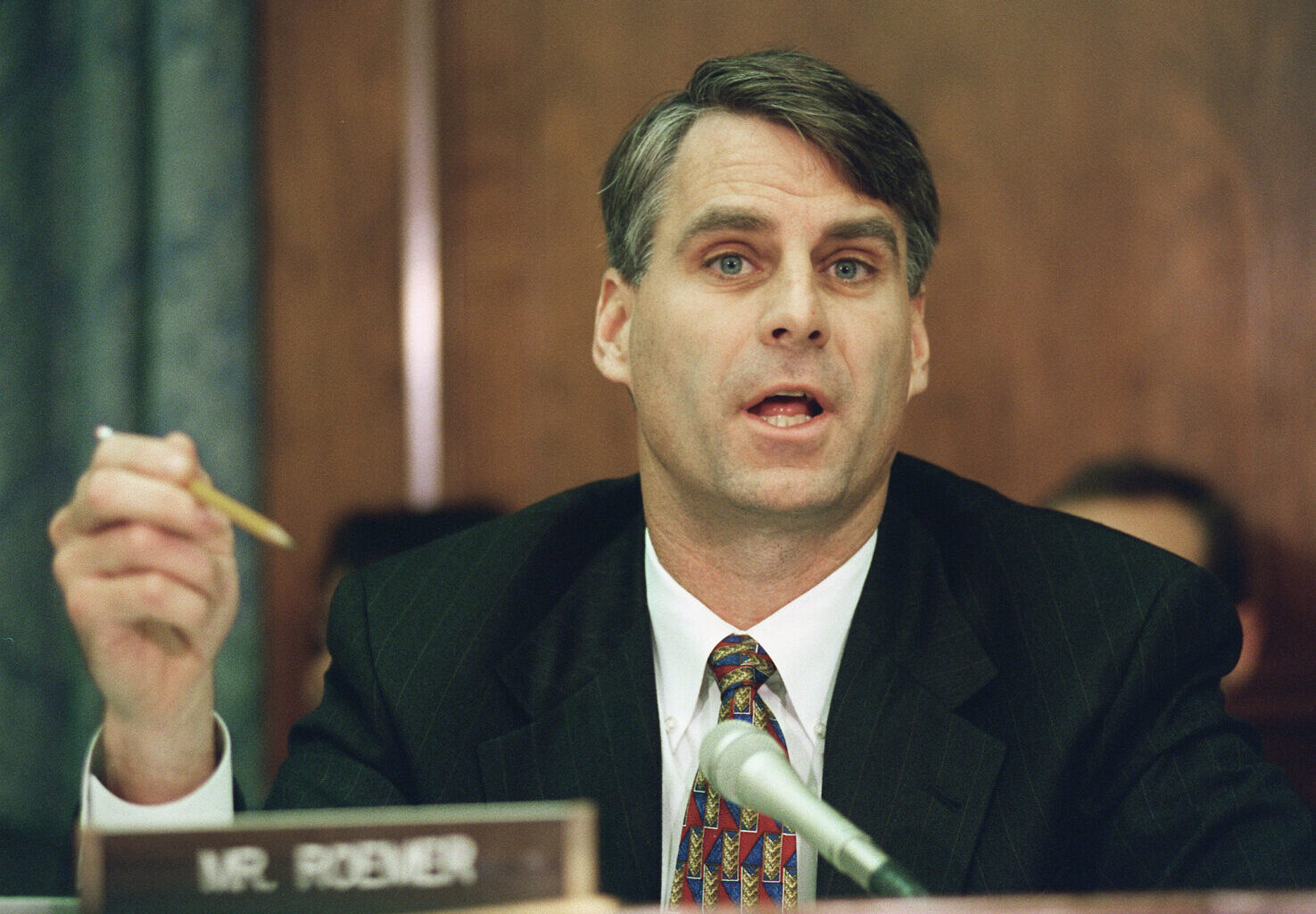
This is part of a recurring series on what former members of Congress are doing in their post-congressional careers.
There are many fronts in the battle to preserve democracy, and former Rep. Tim Roemer is in the middle of the action on all of them.
The Indiana Democrat, who served in the House from 1991 to 2003, has spent the past decade as a senior adviser and co-chair of Issue One’s ReFormers Caucus, a bipartisan group of about 200 former public officials “united to fix our broken political system.”
“We’re working on everything from big money in politics to restricting gerrymandering to the Electoral Count Reform Act to how do we make Congress work better across the board,” Roemer said.
“We’ll sign on occasionally to amicus briefs. We will get involved in letters that we want to circulate. We’re very, very supportive of restricting members of Congress from trading in individual stocks. So we’re working on that issue as well right now, lots of different things to try to strengthen democracy and put country over party, and do it in a cross-partisan way.”
Roemer is joined at the ReFormers Caucus by a prominent cast of former lawmakers, Cabinet members, governors and others. His co-chair is former Rep. Connie Morella, R-Md. He appeared with former Rep. Charles Boustany, R-La., on C-SPAN last month to talk about the group’s efforts.
“We’re trying to find ways to restore trust in the American system of government and also understand how we can bring both parties together to work on the problems that most Americans care about but are being ignored because of the partisanship,” Boustany said on the program.
Roemer, who turns 69 on Oct. 30, looks back fondly on his 12 years in the House.
“Congress is such a good job,” he said. “You have the ability to campaign and to meet people and to go to churches and temples and mosques and fish fries and steel plants and dairy farms and Chamber of Commerce meetings and, you know, everything in between. So when you leave, ideally, you want to piece together some jobs that give you a lot of that same challenge, diversity and impact.”
A native of South Bend, Ind., who became a congressional staffer while earning master’s and doctoral degrees at the University of Notre Dame, Roemer has had a number of roles since deciding not to run for reelection in 2002. His work on national security issues while in Congress helped land him on the 9/11 Commission that investigated the terrorist attacks in 2001 and recommended responses by the government. He then led the Center for National Policy, a think tank now known as the Truman Center.
Roemer was among the first Democrats to endorse then-Sen. Barack Obama for president in 2008. “I believed that he was going to connect to people, and he did,” Roemer said. President Obama showed his appreciation by appointing Roemer the U.S. ambassador to India in 2009, a post he held for two years.
Roemer’s appreciation for democratic government deepened while in India. “I remember seeing a grandson carry his grandmother to the voting polls on his back for, you know, probably a mile,” he said. “He would let her vote and carry her back home. And so you saw both the respect for voting and the respect and honor for democracy.”
After returning to Washington, Roemer became a senior executive at the public affairs firm APCO Worldwide, and in 2015 he joined Issue One, which was founded two years earlier “to reduce the influence of money in politics through bipartisan reform,” according to its website.
One of the group’s top issues is redistricting, especially now that some states are moving to redraw congressional lines before the next census in hopes of providing partisan advantages in the 2026 midterms.
“Gerrymandering is such a pernicious and evil process,” Roemer said. “I don’t care if it’s in California or Texas or Indiana, it is wrong. It destroys people’s trust in democracy. It puts all the power in the politicians’ hands and takes it away from the people.”
Asked if he believes blue states should be countering red-state redistricting efforts with their own in order to avoid losing seats in the House, Roemer was emphatic. “No, I don’t,” he said. “I think the Rev. Martin Luther King, quoting Mahatma Gandhi, said this: ‘An eye for an eye eventually leaves everybody blind.’ … Eventually, all Americans are going to say, ‘I hate the system. It’s rigged. I’m not going to vote anymore.’”
Congress could end the gerrymandering war by passing legislation to ban mid-decade redistricting and set minimum standards for voter representation in congressional districts, Roemer said.
“The Voting Rights Act is integral to a fair and equal process,” he said. “It simply says, if there are large numbers of certain people in communities … the integrity of those communities has to be respected and reflected in our elections.”
Roemer said he has been encouraging young people from all parts of the political spectrum to run for office, either at the local, state or federal level. “You have to help us get out of this abyss, and actually, it’s one of the best times you could ever do it in our history,” he said.
“This is really going to be the time in the next three to four years for young people and new people to get involved in the system and actually get traction to make a difference,” he said.
“I think there’s an opportunity to start to turn things around,” Roemer said. “I’m a big believer in America, and I think we’re going to come out of this.”
